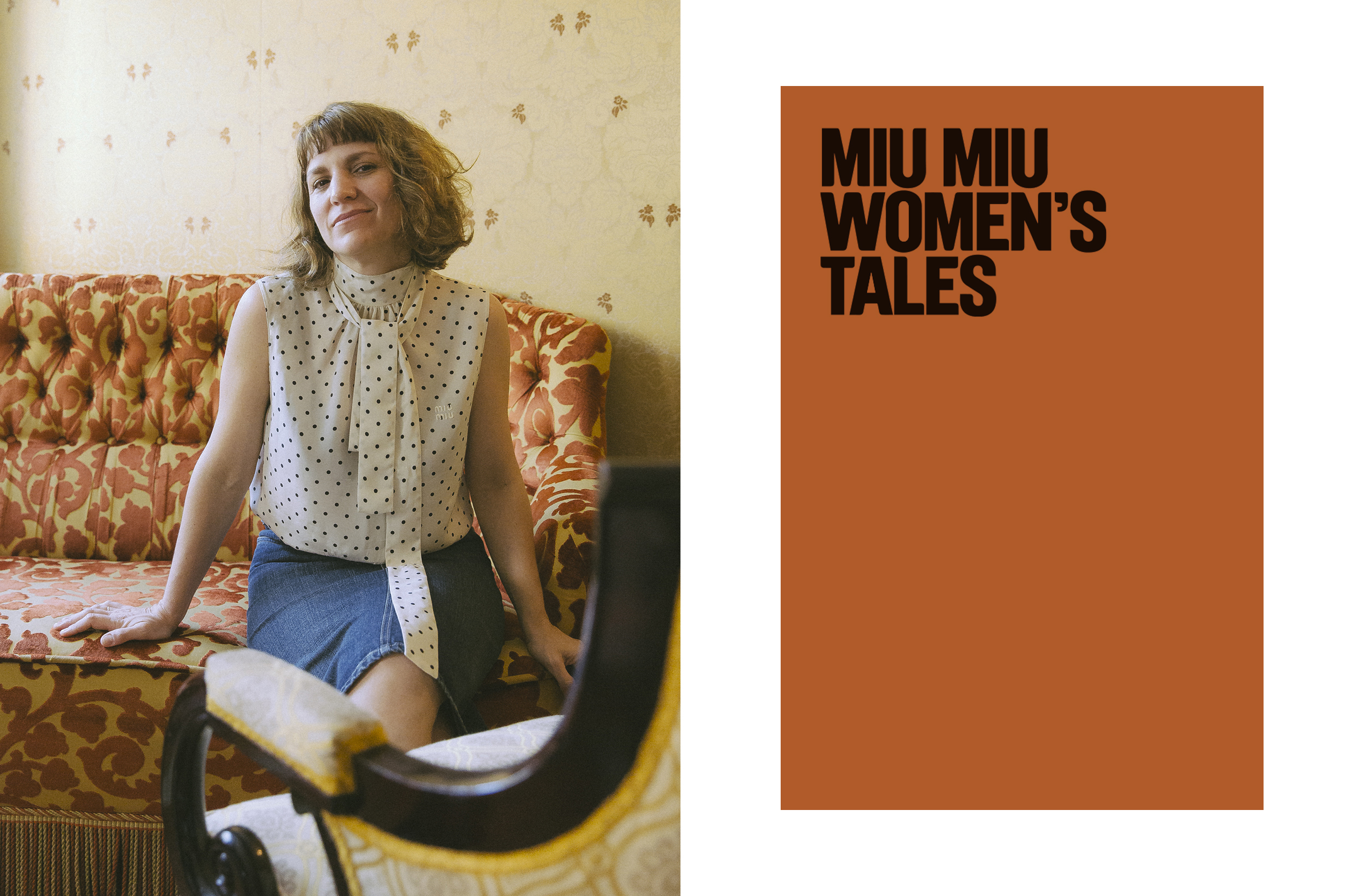Cinema is a powerful language through which people can connect with diverse topics, learn something new about the world, and, most importantly, about themselves.
Miu Miu understands this well: Miu Miu Women’s Tales empowers female directors to build a bridge between their unique worlds and filmography, fashion, and significant themes such as women’s empowerment, inclusivity, and equality. For their 28th short film, they collaborated with director Laura Citarella, who drew inspiration from the Argentinian landscape and social dynamics to create “El Affair Miu Miu.” It is a mystery drama centered on freedom, where women can leave, take control, and express their emancipation without needing to justify their choices.
As Laura shared during our interview about the project, this film represents a new way of exploring for her. Her inspirations and filmmaking approaches are constantly evolving as she seeks new ways to keep the mystery of life and being a woman alive—as it should be.
First of all, congratulations on your short film “El Affair Miu Miu”. How does it feel to be in Venice?
I was here in 2003 with a student’s film we had done with some friends, and that was my first time. But nobody was speaking to us and it was very fun because we were so young, at the Settimana della Critica, waiting for someone to come to speak to us [laughs]. We didn’t know how the Festival worked at the time!
I came back two years ago because I released my film “Trenque Lauquen” and then again last year because I was on the jury for First Features. I’ve been coming here for three consecutive years and I really like it. It’s strange because it’s a Festival where you work, but you are at the same time surrounded by beauty, and you’re going from one place to another and sometimes you can’t believe where you are.
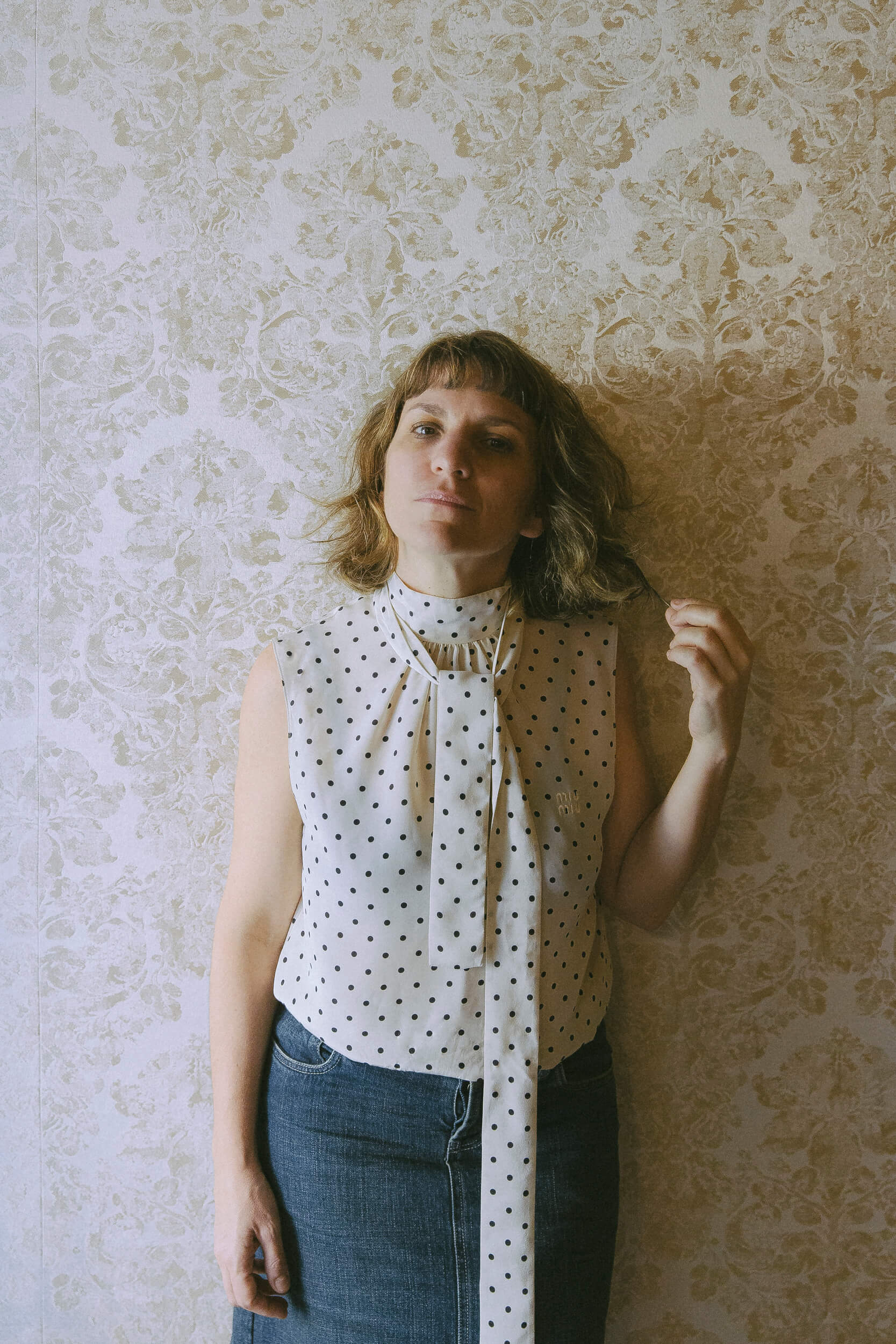
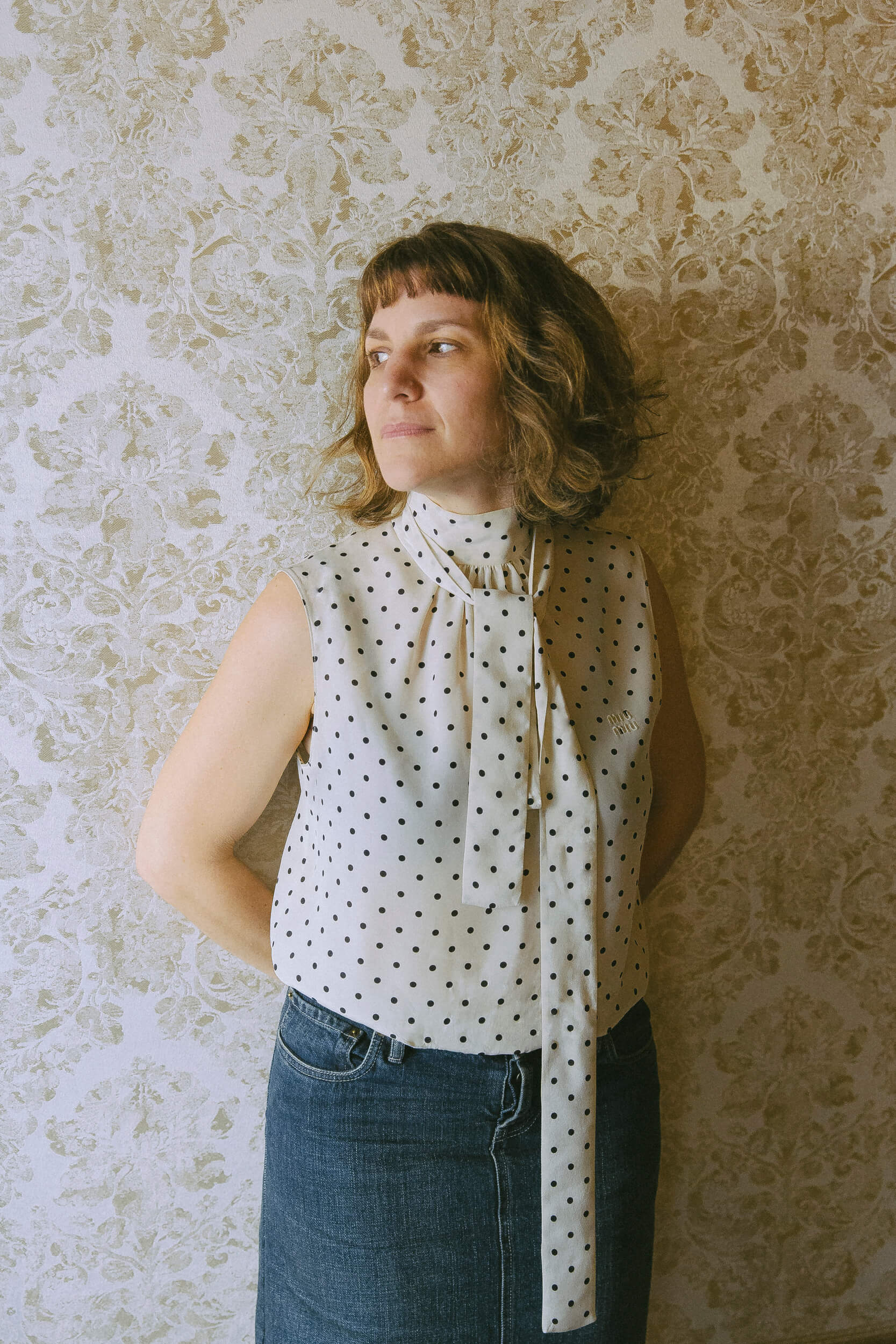
What was the first reaction when you were contacted by Miu Miu and how does the idea of this short movie come to your mind? Did you have a main inspiration or is it more like a collage of different things?
I was surprised, I didn’t expect to be called. I knew about the project because one of the first short movies was directed by Lucrecia Martel, and we Argentinian directors all admire her. I was very happy and I also felt like a big responsibility to receive a proposal like that and do it well, and be happy with your cinema and make the people that are contacting you happy. It’s always nice and intense as a situation.
There was almost no brief, the only thing that I was requested to do was to make a short movie and use the winter collection that was going to be sent to me. With that, I had to create something, and it was funny because I was trying to understand if there was any rule as I didn’t receive anything, my freedom was total.
I think the spirit of the project is to say, “Ok, this is an encounter between the director and Miu Miu” and you have to think about what you can do with that, with no limits, no requests on how to show the costumes. It’s very interesting because brands or corporations are usually protecting themselves all the time, trying to control and supervise every image of the products they’re selling. In a way, this is really a brave project because you can do what you feel, what you wish as you see it. There’s no commercial idea behind this, this is an action, a political response to other things. That’s where the idea of including Miu Miu in the film and not only the costumes comes from, to make it transparent: it’s not about Laura Citarella being called by Miu Miu to make a film, but it’s about Miu Miu arriving in Argentina, which is in a way similar to what happened to me as a director. One of the first things I thought about was that woman who disappears, which is similar to what happens in “Trenque Lauren”, where the mystery is about a woman who leaves. In “El Affair Miu Miu”, instead, the setting is the world of fashion, with a model who has a very strange relationship with the pampas in Argentina.
This short movie has a mystery-drama with a retro allure, and that’s a genre you were already familiar with. What are your main inspirations for that genre, both cinema and culture-related?
I work with many books, films, and genres. “Trenque Lauquen” is a mutating film: it starts like a road movie and then becomes a thriller, and then a fantasy, with almost sci-fi elements. In a way, with small tricks, you can do it with a short film as well, despite having less time. This short film, in fact, starts like a Fellini movie and then mutates. In the beginning, we see this woman arriving in town and everybody is happy about it, then it becomes a detective story, and then, suddenly, when the clothes appear, it becomes a fantasy, but also drama and humor, and suddenly some absurd situations also appear. It’s interesting because one of the things I try to do when I make films is not go to one place only, it is trying to move, and that’s why the language of the actors is not going directly to the way of a police/thriller plot, it’s lighter.
My idea is not to establish just one thing for a film, but mutating and moving all the time.
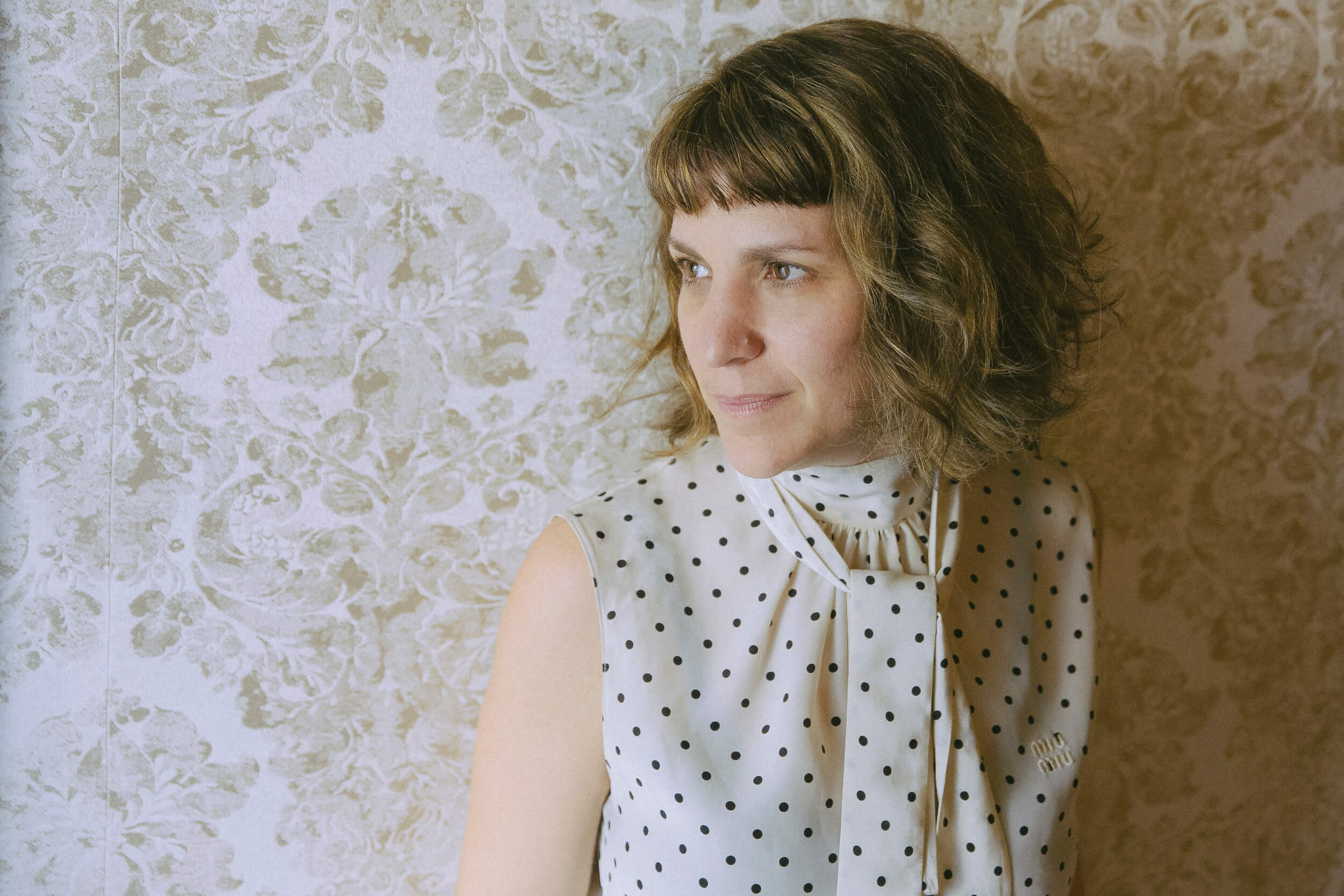
“…it’s not about Laura Citarella being called by Miu Miu to make a film, but it’s about Miu Miu arriving in Argentina.”
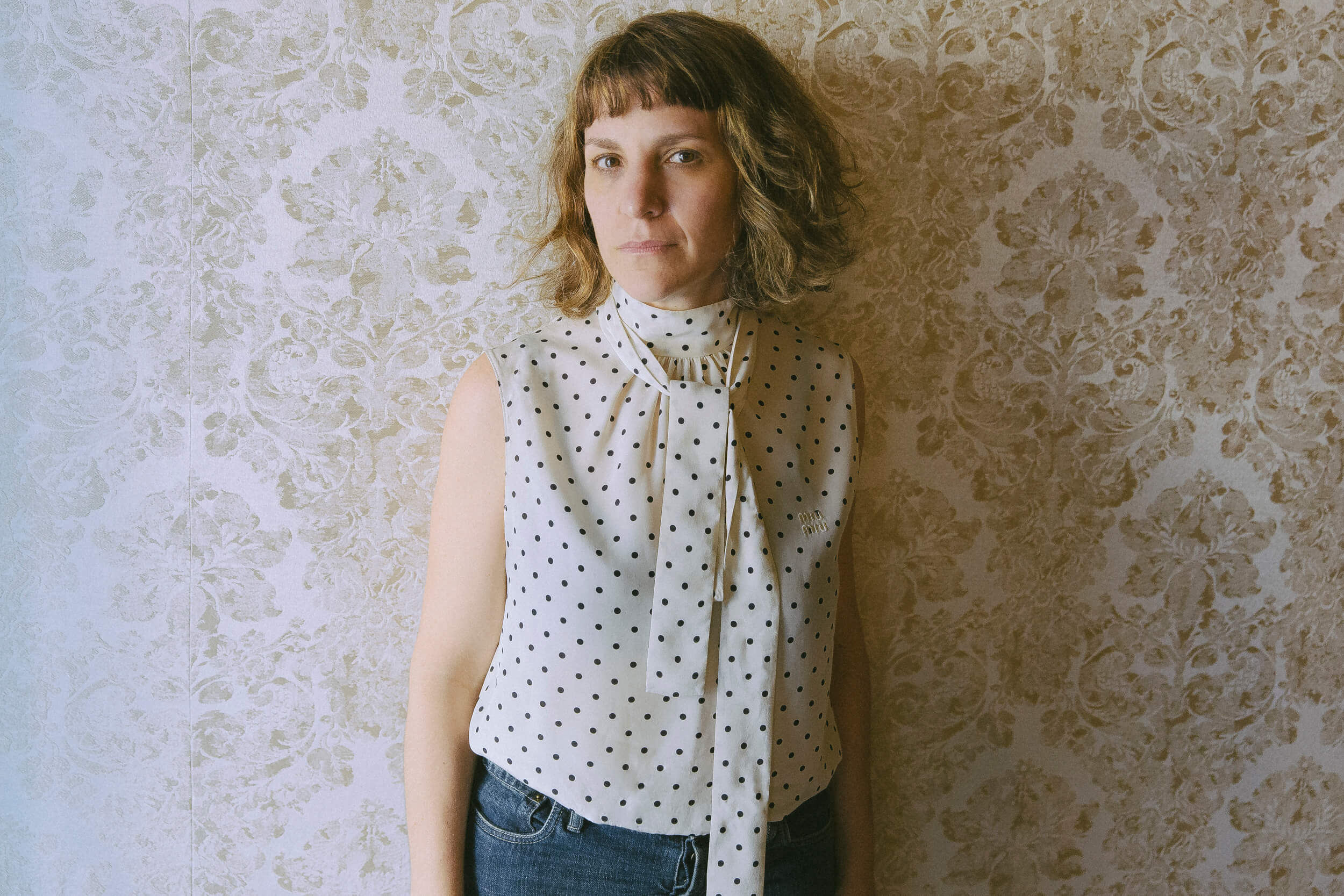
What captures the eye is the strong contrast between the fashion world of Miu Miu clothes and La Caterina’s lifestyle with the rural setting of “Trenque Lauquen”. Do you think that fashion could be a bridge between different worlds and realities?
I think that cinema is a bridge: cinema is the bridge between “Trenque Lauquen” and Miu Miu. If it wasn’t for the cinema we wouldn’t have met. I think cinema can make two very different things finally find each other, and it’s very mysterious because they start having their own dialogue. I think there’s something that happens in the show and it’s the idea of conversation where cinema is allowing the fashion world to get into the fictional dimension of it, and at the same time, fashion is allowing cinema to get to portray some aspects of that world.
What struck me about the movie is the fact that the three women of the investigative team feel a natural, in an ironical way too, relationship with fashion.
I think you can have a vision of fashion as something that you don’t need because you don’t feel like it’s essential to your life; then, you can start understanding that fashion is so into your life that you don’t even think about it. What happens to the characters in the film is similar to what happened to the people who did the film: when clothes arrived in Argentina, it was marvelous, as if they were something untouchable because, in Argentina, we don’t have these kinds of fashion brands. Argentina is a very difficult country in many ways, it’s very poor, and there are many restrictions on things that you can see, so it’s a nightmare for brands to go there.
Trying to understand clothes, suddenly, for us was crazy, we were looking at them thinking what the mystery behind them was. Miu Miu’s designs are particularly diverse in how they connect with each other and although some pieces might look similar, there’s always some detail that makes a difference. You can’t but feel intrigued by this world.
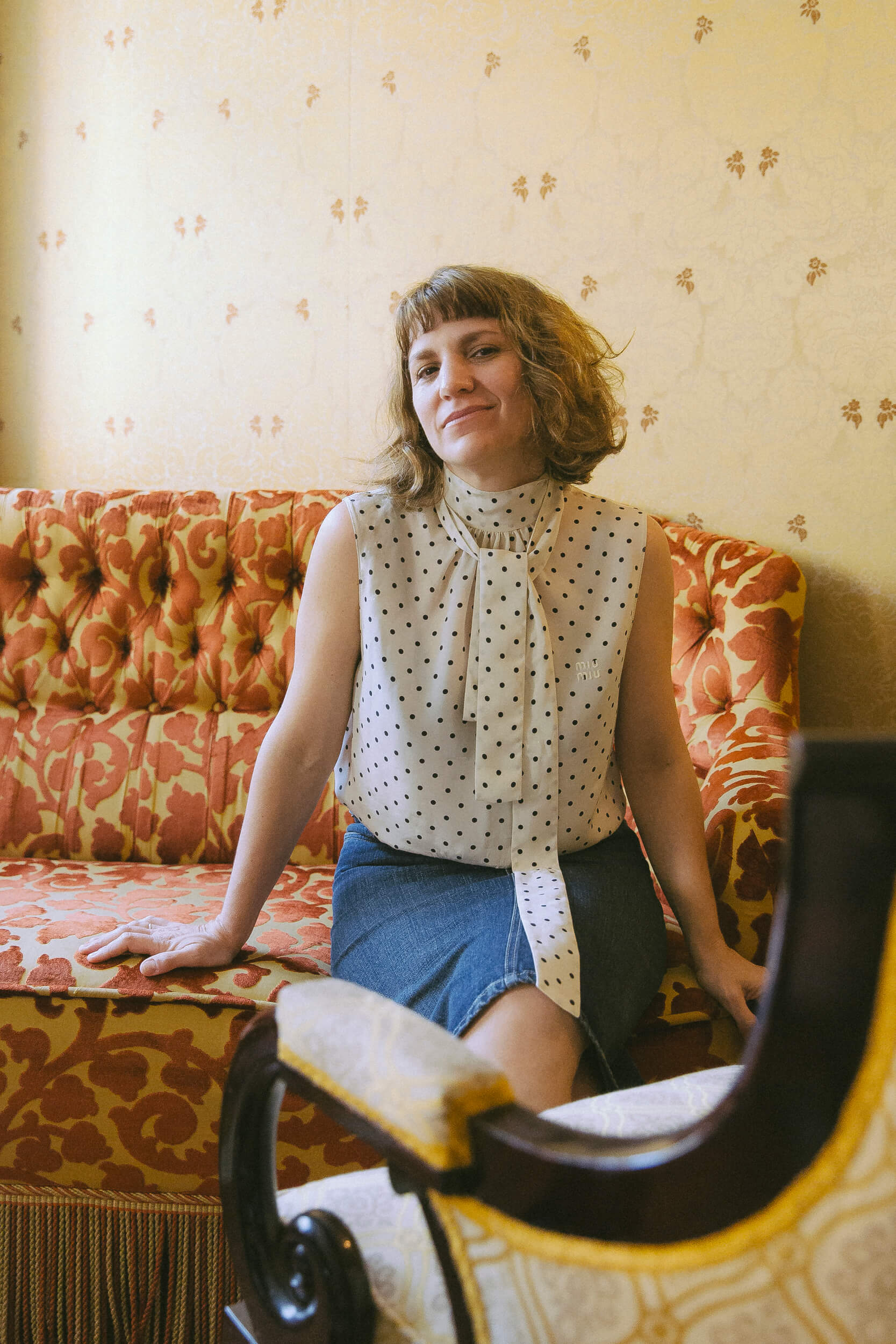
“I think cinema can make two very different things finally find each other, and it’s very mysterious because they start having their own dialogue.”
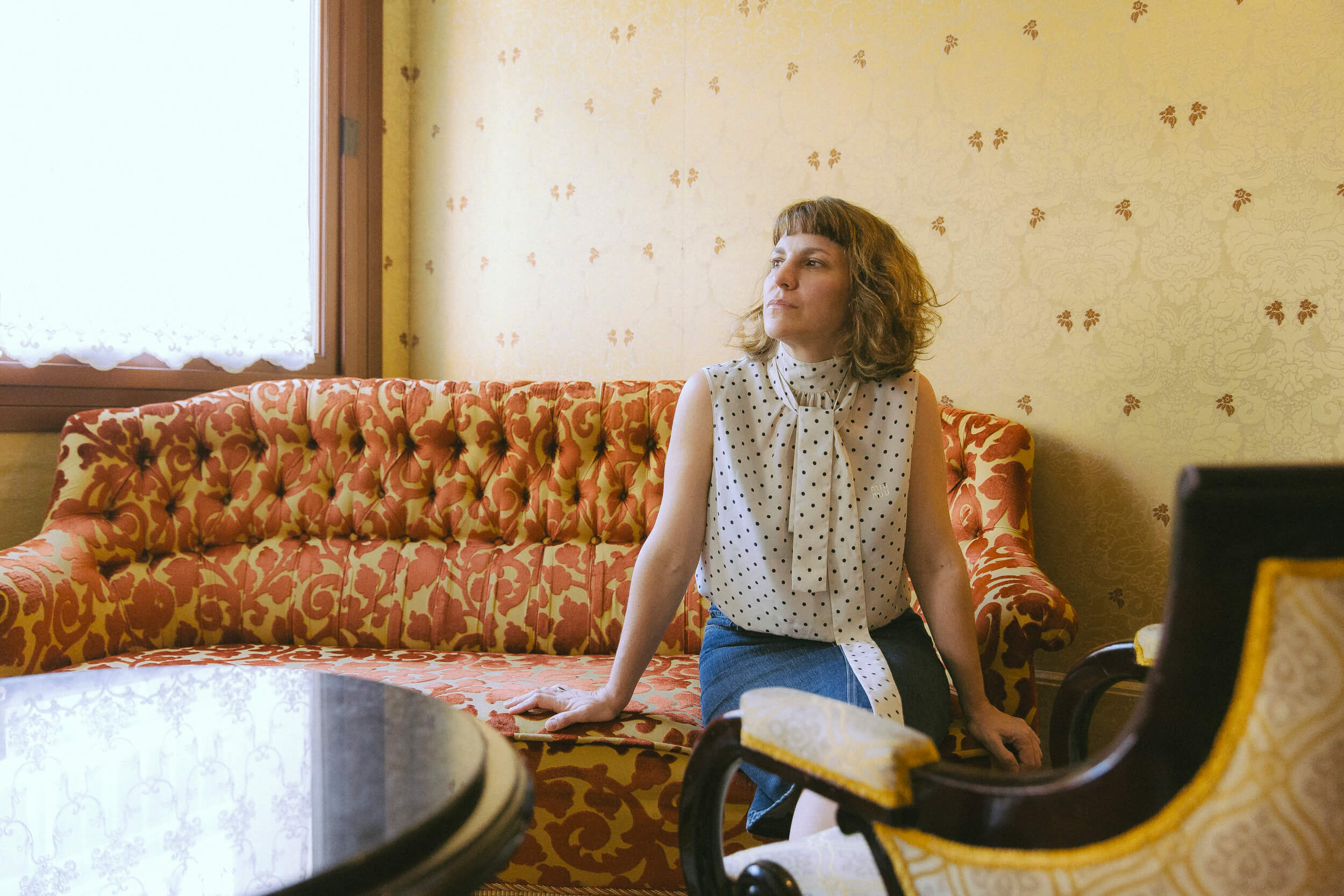
Another theme of yours is that of escaping. Are freedom and escapism similar concepts for you?
No, I think they’re different. Escaping means that you feel tight to something… I’m a bit obsessed with the theme of women leaving. This appears in “Trenque Lauquen” with Laura’s character but also with the character of Carmen Zuna, who represents me while pregnant and wanting to escape pregnancy.
In this short film, you see the model working and suddenly she’s no longer there, and it might be perceived as a fantastic movement of the show or you can think that there are two Caterinas, but the important thing for me is to project the image of a woman who leaves because she wants to leaves. Usually, if a woman leaves everyone thinks it’s because she’s crazy, insane, or in danger, and we are not very familiar with the idea of a woman leaving to emancipate. It’s strange because in the history of cinema, if you see men doing this kind of thing, we don’t give it too much importance, or at least we don’t think of so many hypotheses, and I think it has to do with the way that men have been establishing themselves in the world, which is “trying to understand woman”, they are obsessed with understanding why women do what they do, why they leave.
In “Ostende”, my first film, there was a critic who was very surprised because, in a scene, Laura Paredes was drinking a beer alone in some place. It’s us who made this situation strange, and this image for me is a projection of how I would like to keep that in life, with no male gaze on me. Even in sexuality, men are always trying to read our minds and there’s something strange in that obsession.
I was recently asked if I did feminist films: I don’t see it that way, all I know is that I work with images that I would like to bring to the world, and I want my films to feature images that project these possibilities.
Fashion, cinema, the Miu Miu Women’s Tales have the power to change reality.
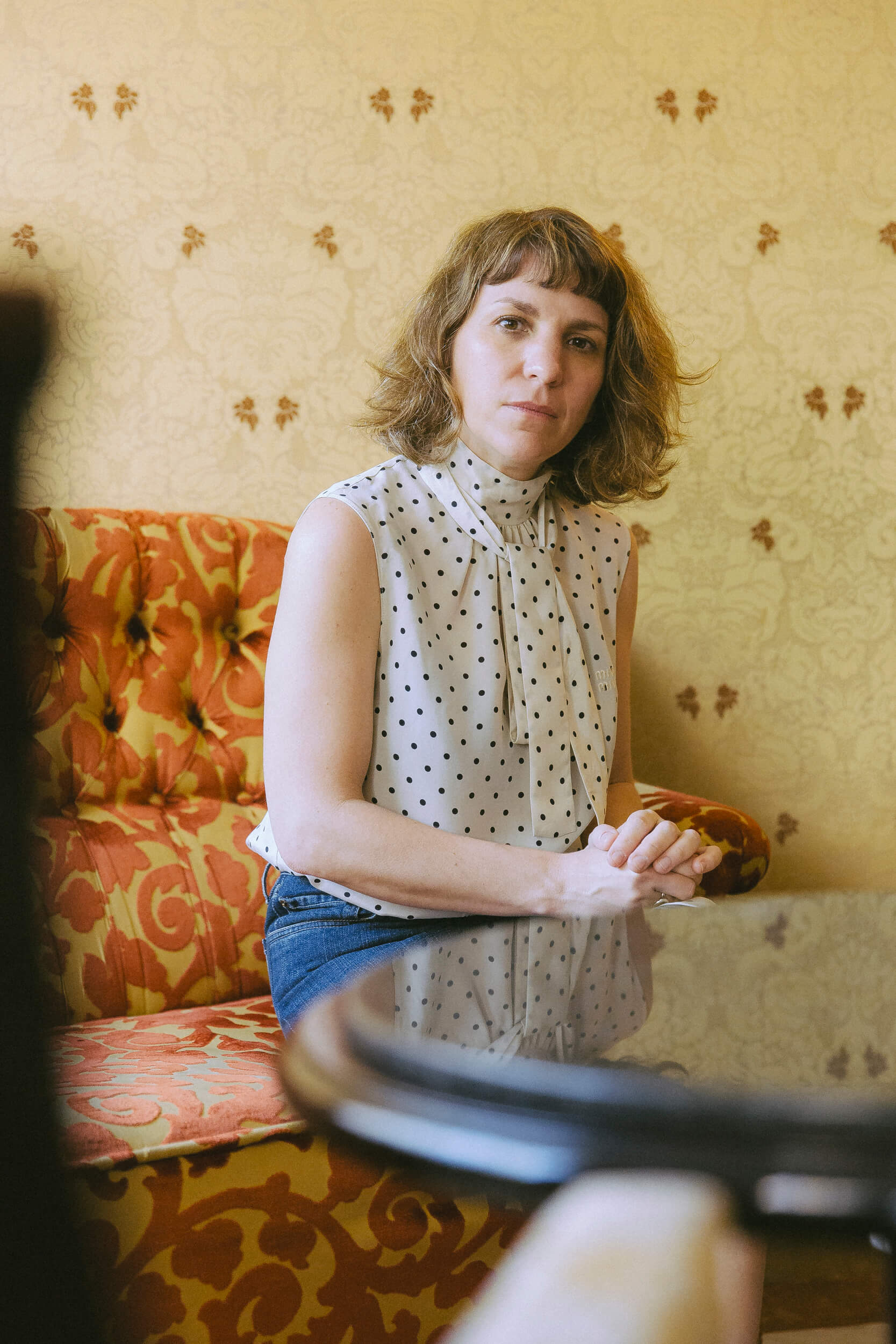
“No male gaze on me.”
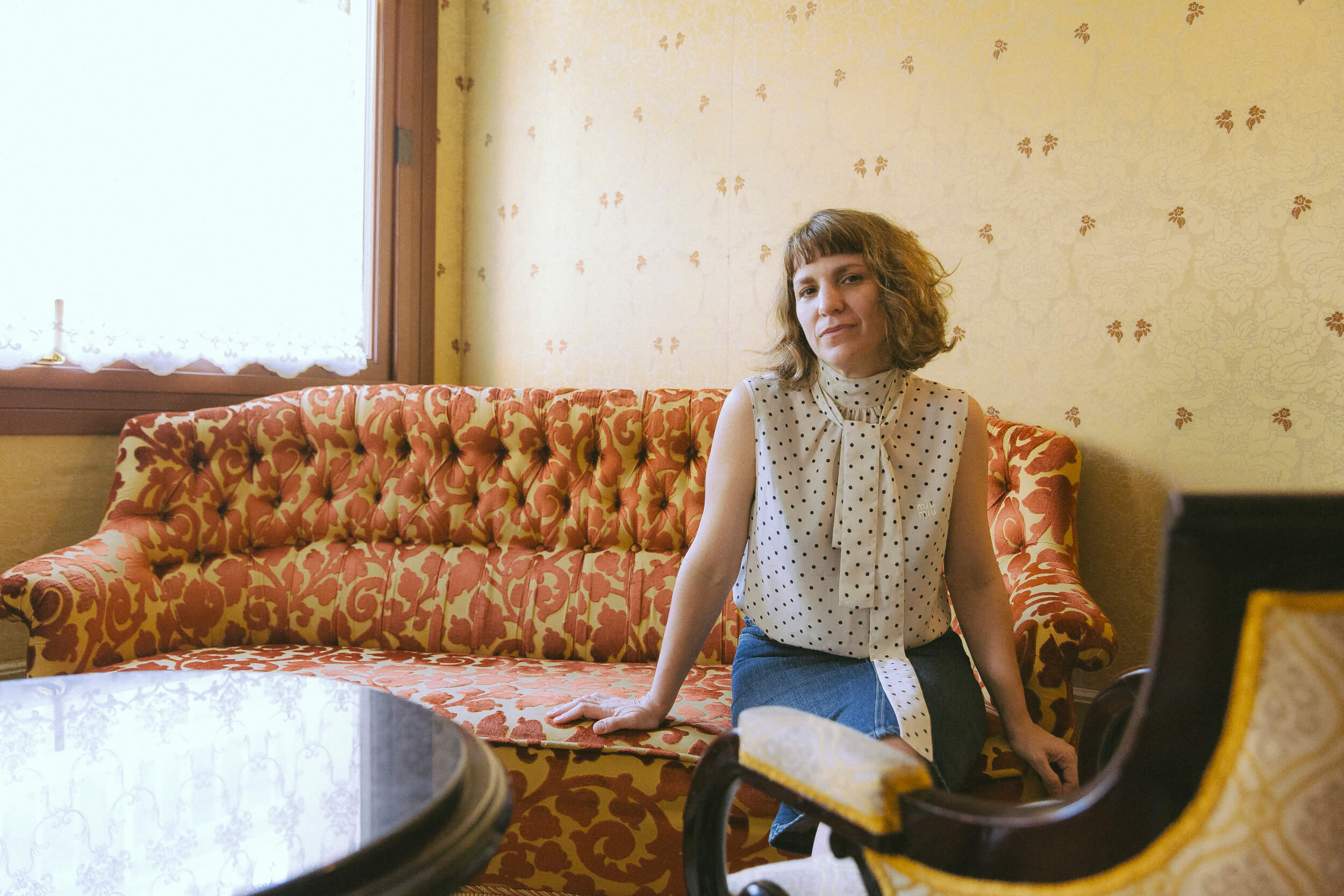
Yes, I think representation matters but it’s not just about that…
Right. In the films I make, I always like to work on mystery as some kind of suspended sensation or atmosphere where maybe you don’t understand very much, but suddenly you cannot stop following what is happening. For me, this is a very similar perception to women’s understanding of reality. We are all different, of course, but we have a tendency to let the mysteries be mysteries, and sometimes not understanding what we have in our minds is something that we enjoy.
I enjoy not knowing because the mystery keeps me alive.
Sometimes, critics don’t know what name to give to this perception, and when they don’t know what to say, they establish that that’s the “female gaze”. But it’s wrong, it’s a director’s way of shooting and not even a gaze! Sometimes categories are helpful, but I think you don’t need to give a name to everything. It’s a way of making women feel invisible, although perhaps not always intentionally.
What‘s the latest thing you discovered about yourself, also thanks to your work?
Today, it was interesting when we talked about the Prada world and Miss Prada: there’s something I find very interesting about her because she belongs to a huge world, from both a creative and an economic point of view. I feel like the value is in the things that happen: she’s of course important herself, but still, she’s working for this certain thing happening in the world.
Over the last few years, “Trenque Lauquen” has become I don’t want to say a success, but we made a film in a very independent way and it became very important for some publications and it was awarded as Best Film at the Mar del Plata International Film Festival. I started understanding that I like that way of life, being a little bit aside – I can talk to you a lot about my personal life, about myself as a mother, although we don’t know each other and I’m telling you about me because I’m a filmmaker, but I’m always trying to keep my feet on the ground because what really matters is the film and to make as many people as possible to watch it.
A friend of mine, a singer, once said something beautiful to me: “I write my songs not for me but to listen to them all together”. I think that’s a good way of thinking about art and creativity: community is important. I’m the head of course, and I’m the director, but I’m working with people, in my case in a completely collective way, I share my creativity process with them, but the only important thing is what happens outside of us, which is a film that will leave hope forever, which is what I want. That’s something I discovered lately and it’s great to think of it that way, I feel more relaxed.
Like they say in the short film: “Nobody’s thinking about you, Chicho”. Sometimes, we have to tell this to ourselves.
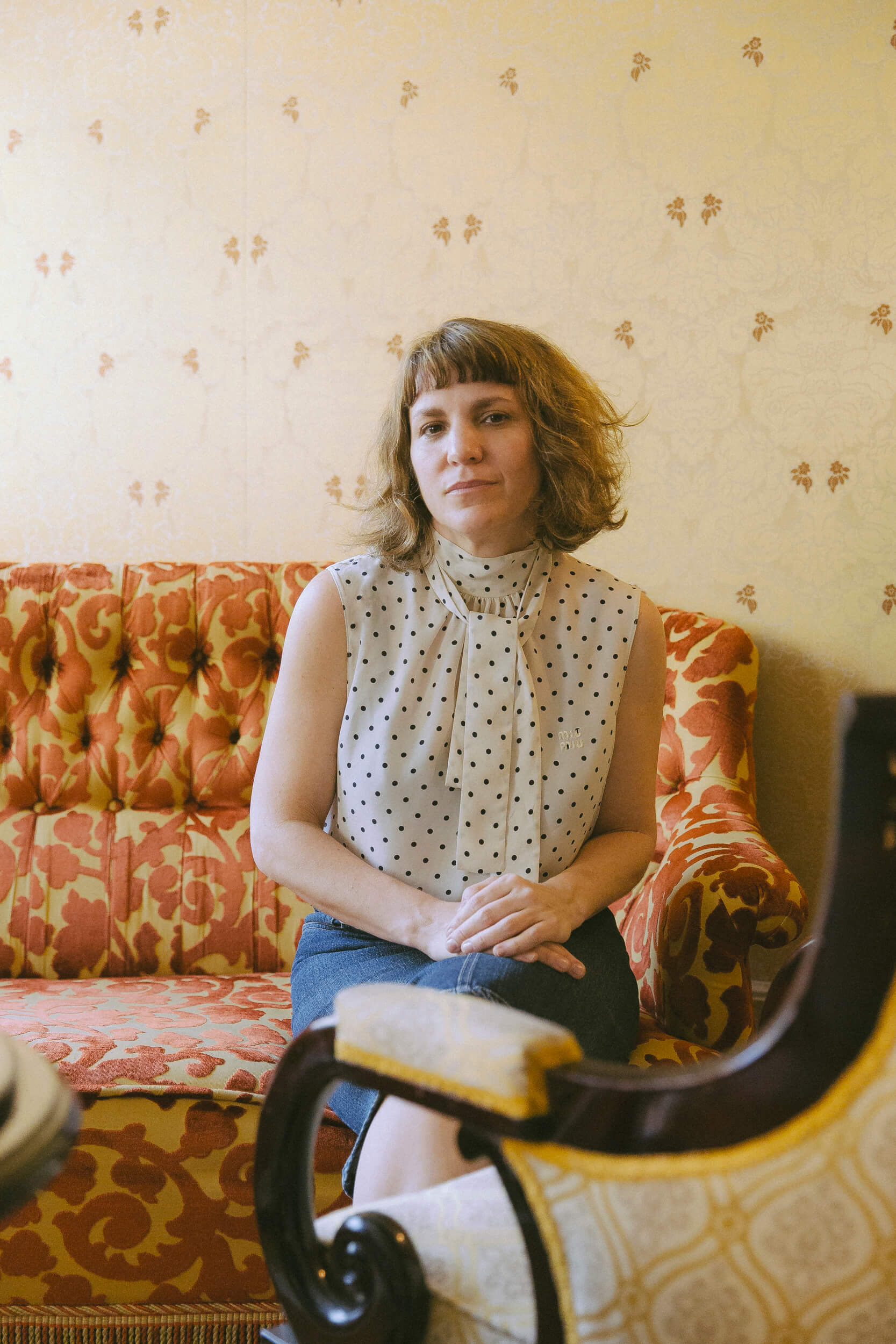
Photos by Luca Ortolani
Thanks to Miu Mu

